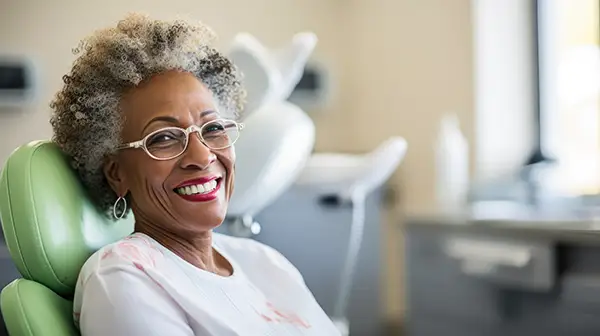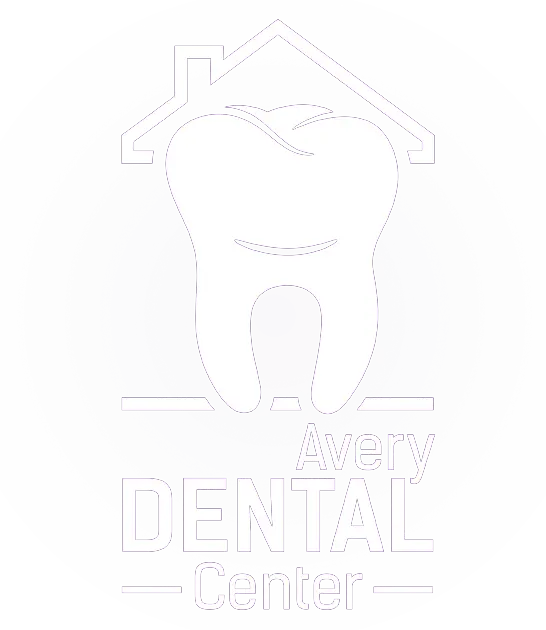Geriatric Dentistry for Seniors
 As we age, our dental needs evolve. Geriatric dentistry focuses on addressing these changing needs, providing compassionate and tailored care for older adults. At Avery Dental Center, we are dedicated to supporting senior oral health with preventive, restorative, and accessible dental services designed specifically for the aging population. As we age, our dental needs evolve. Geriatric dentistry focuses on addressing these changing needs, providing compassionate and tailored care for older adults. At Avery Dental Center, we are dedicated to supporting senior oral health with preventive, restorative, and accessible dental services designed specifically for the aging population.
What is Geriatric Dentistry?
Geriatric dentistry is a branch of dental care that specializes in treating the oral health needs of older adults. Unlike general dentistry, it accounts for the unique physical, medical, and psychological conditions that often accompany aging.
As the senior population continues to grow, the demand for dental care for seniors increases. Many older adults face a variety of oral health challenges that require expert attention.
| • |
Tooth Wear - Years of chewing and grinding can erode enamel and increase sensitivity.
|
| • |
Gum Disease
- Seniors are more susceptible to periodontal issues due to poor circulation or past neglect.
|
| • |
Oral Cancer Risk
- Risk increases with age, making routine screenings vital.
|
| • |
Link Between Oral and Overall Health - Poor oral hygiene has been linked to systemic conditions like heart disease and diabetes. |
Understanding the connection between oral and systemic health is essential in senior dental care. Our team is trained to provide solutions that preserve both oral function and overall well-being.
Unique Dental Challenges in Older Adults
Aging can introduce specific oral health concerns that impact a person’s quality of life, nutrition, and social confidence.
| • |
Tooth Loss - Missing teeth affect chewing ability, speech, and self-esteem.
|
| • |
Dry Mouth - Many medications commonly prescribed to seniors reduce saliva, increasing cavity risk and discomfort.
|
| • |
Gum Recession and Periodontal Disease - Gum recession can lead to tooth instability and pain.
|
| • |
Oral Hygiene Challenges - Arthritis, Parkinson’s, and cognitive decline (such as Alzheimer’s) can hinder proper brushing and flossing. |
Medications like antihistamines, antidepressants, and blood pressure drugs can significantly reduce saliva production. Furthermore, conditions like dementia can compromise daily hygiene routines, making dental care for seniors even more critical.
Preventive Dental Care for Seniors
Preventive care is the cornerstone of maintaining senior oral health. Regular dental visits help detect and manage issues early, reducing the need for complex procedures later on.
| • |
Routine Check-Ups - Allow for early detection of cavities, infections, and oral cancers.
|
| • |
Fluoride Treatments and Sealants - Help strengthen enamel and reduce decay.
|
| • |
Nutrition Counseling - Promotes diets that support dental and systemic health.
|
| • |
Adaptable Hygiene Tools - Electric toothbrushes, water flossers, and floss picks improve accessibility. |
Consistent preventive care tailored to a senior's specific needs helps maintain function and comfort while avoiding costly dental interventions.
Restorative Options – Dentures, Implants & More
As teeth wear or are lost over time, restorative dental care becomes essential for seniors seeking to maintain their oral function and appearance.
| • |
Full and Partial Dentures - Removable appliances that replace multiple missing teeth.
|
| • |
Implant-Supported Dentures - Provide enhanced stability and comfort.
|
| • |
Dental Implants - Ideal for seniors with sufficient bone density, offering a permanent tooth replacement solution.
|
| • |
Crowns and Bridges - Restore damaged or missing teeth and improve chewing efficiency. |
Implant-supported dentures differ from traditional options by offering improved fit and reduced irritation. Our dentists consider factors like jawbone density and medical history when creating customized treatment plans.
Creating a Comfortable & Accessible Dental Environment
Our dental office is designed with seniors in mind, ensuring that every visit is comfortable, stress-free, and accommodating of physical or cognitive limitations.
| • |
Mobility-Friendly Features - Ramps, wide hallways, low-seating, and wheelchair accessibility.
|
| • |
Communication Support - Staff trained to assist those with hearing loss or memory impairments.
|
| • |
Flexible Scheduling - Longer appointments and caregiver support are welcomed.
|
| • |
Anxiety Management - Options like sedation are available for patients with dental fear. |
We create a quiet, patient-centered environment and encourage the presence of caregivers or family members during appointments to support comfort and understanding.
How to Choose the Right Dentist for a Senior
Selecting the right provider for geriatric dental care is an important decision. Look for professionals experienced in working with older adults and familiar with the challenges that may affect treatment.
| • |
Senior-Specific Expertise - Experience in managing age-related oral health needs.
|
| • |
Accessible Practice - Physical design and appointment policies that cater to mobility or memory concerns.
|
| • |
Collaborative Approach - Willingness to coordinate with physicians and caregivers.
|
| • |
Comprehensive Evaluation - Review of medications, chronic conditions, and lifestyle factors that affect oral health. |
We recommend bringing a caregiver or loved one to appointments to help communicate needs and ensure continuity of care across healthcare providers.
Schedule an Appointment Today
Whether you're an older adult or a caregiver seeking senior dental services, our team at Avery Dental Center is here to provide respectful, personalized care. We make it easy to navigate insurance questions and offer affordable treatment options tailored to older adults’ needs.
Call (380) 257-1684 to schedule your consultation and take the first step toward protecting your smile and your health.
FAQs
Why do seniors need specialized dental care?
Seniors face unique dental challenges such as dry mouth, gum recession, and the effects of chronic health conditions and medications. Specialized care ensures these issues are addressed with age-appropriate treatments and preventive strategies.
Are dental implants a good option for older adults?
Yes, many seniors are candidates for dental implants, provided they have adequate bone density and overall health. Implants offer a stable and long-lasting solution for tooth replacement and can improve quality of life.
What if my loved one has dementia—can they still receive dental care?
Absolutely. Our team is trained to provide compassionate care for patients with cognitive impairments. We adjust communication styles, allow caregiver participation, and create a calming environment to support the patient’s comfort and cooperation.
|

 As we age, our dental needs evolve. Geriatric dentistry focuses on addressing these changing needs, providing compassionate and tailored care for older adults. At Avery Dental Center, we are dedicated to supporting senior oral health with preventive,
As we age, our dental needs evolve. Geriatric dentistry focuses on addressing these changing needs, providing compassionate and tailored care for older adults. At Avery Dental Center, we are dedicated to supporting senior oral health with preventive,